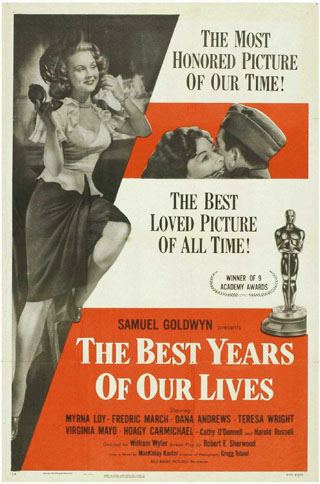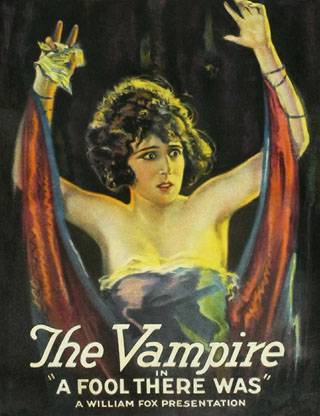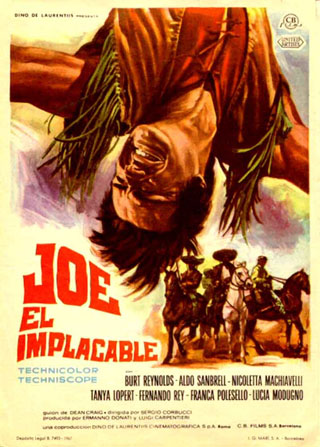The 2012 lists have finally dwindled to the point that we can fold them into overall roundups such as this one. But there are still a few greats ones coming in to mull over. Danny Kasman introduces the Notebook‘s always-intriguing Writers Poll, “which calls upon our writers to pick both a new and an old film: they were challenged to choose a new film they saw in 2012—in theaters or at a festival—and creatively pair it with an old film they also saw in 2012 to create a unique double feature.” This 5th poll features quite the lineup of contributors, too (with the obvious exception of one David Hudson).
Ed Howard offers another reprieve from the usual suspects with his list of the “the best films I saw for the first time during 2012, regardless of when they were released… accompanied by excerpts from my reviews.”
Then there’s Sight & Sound‘s big, big poll. You’ve already seen the list of the top two dozen, but now you can read comments from all 90 critics who cast a ballot.
Dana Stevens, Wesley Morris, Keith Phipps, and Stephanie Zacharek are discussing 2012’s movies in Slate‘s Movie Club. And as Reverse Shot bids farewell to 2012 with a series of items such as “Best Against-All-Odds Performance,” “Clunkiest Denouement,” and so on, PopMatters has just begun rolling out its lists. Ray Pride posts “10 + 23.” His #1: Zero Dark Thirty.
Awards and nominations. “Lincoln led this morning’s BAFTA nominations with 10 mentions,” reports Guy Lodge at In Contention, “followed closely by Life of Pi and Les Misérables with nine each.” Argo‘s scored seven: “indeed, BAFTA took such a shine to Ben Affleck’s film that they became the first group to nominate him for Best Actor too. Skyfall, the highest-grossing film in UK box-office history, managed eight nominations.”
The votes are in from the Online Film Critics Society. Argo takes Best Picture but Paul Thomas Anderson is named Best Director.
“Ben Affleck, Kathryn Bigelow, Tom Hooper, Ang Lee, and Steven Spielberg have been nominated for feature film honors at the Directors Guild Awards,” reports Variety‘s Jon Weisman. Also: “Five live-action pics made the cut for the Cinema Audio Society‘s nominations for outstanding achievement in sound mixing: The Hobbit: An Unexpected Journey, Les Misérables, Lincoln, Skyfall and Zero Dark Thirty.”
Carolyn Giardina in the Hollywood Reporter: “The Hobbit: An Unexpected Journey, Life of Pi and The Avengers earned the most feature nominations… for the 11th annual Visual Effects Society Awards.”
“The nominations for Los premios Goya (The Goya Awards) 2013 were announced earlier [yesterday], with four films out in front in terms of total nominations—Blancanieves (18), Grupo 7 (16), Lo imposible [The Impossible] (14), and El artista y la modelo (13).” See the full list at Nobody Knows Anybody.
Reading. Anne Helen Petersen at the Hairpin: “As the star of A Fool There Was, she embodied the cinematic ‘vamp’—the evil, predatory woman who seduces men with her dark ways, sucks him dry, and leaves him for ruin. Her name was no longer Theodosia Goodman, but Theda Bara—an anagram, naturally, for ‘ARAB DEATH.’ Her mother was a French actress, her father was an Italian sculptor, yet she had been born ‘in the shadow of the Sphinx.’ She dabbled in the Occult; she communed with dark spirits. She had been reincarnated several times and lunched on lettuce and raw beef. Girl even became her own verb: to pull a ‘ThedaBara’ was to ‘seduce and destroy.’ Offscreen, Bara was her cinematic character made flesh: an alluring, vampish creature, occupying the liminal space between this world and the next. Put differently, Bara was the most blatantly absurd and exquisite of the silent-era studios’ creations.”
Vince Keenan on Margaret Talbot’s The Entertainer: Movies, Magic, and My Father’s Twentieth Century: “Given the cruel pragmatism of show business, it would be all too easy to dismiss Lyle Talbot as a disappointment, an actor who had his chance as a studio contract player in the 1930s but without a breakthrough wound up in Ed Wood movies. Given the eternally optimistic nature of performers, it’s equally feasible to brand him a success, a man who supported his family through his craft alone and became a TV fixture. Only a storyteller would look at Talbot’s career and understand that it touched on virtually every development in modern popular culture, and only a daughter would chart that course with such affection.”
“When he died in December 2011, Kim Jong Il left behind more than a dynastic regime and a closet full of drab pantsuits.” In the Voice, Michael Nordine reviews the products of the North Korea’s #1 cinephile.
At DC’s, Tony O’Neill presents a “Salute to Video Nasties.”
DVD/Blu-ray. “Aleksandr Sokurov‘s Soviet Elegy (1989) begins with a tour of tombstones, the camera floating down rows of Communist phantoms,” writes R. Emmet Sweeney at Movie Morlocks. “In the next sequence, Boris Yeltsin is shown stalking down a hallway, another kind of ghost, one aware of his coming obsolescence. Sokurov’s work is a series of elegies, in which ghosts of history mourn for themselves. Cinema Guild has illustrated this development in their three-disc box set of Sokurov: Early Masterworks. It contains the three features Save and Protect (1990, DVD), Stone (1992, DVD) and Whispering Pages (1994, Blu-Ray), plus three of his shorts, including Soviet Elegy. Each displays his increasingly idiosyncratic visual sense, in which he uses distorting lenses to produce stretched figures akin to El Greco saints, yearning for a God who doesn’t respond. Sokurov is often compared to Andrei Tarkovsky, the previous Russian spiritual guide/director. But while Tarkovsky often offers the possibility of transcendence, there is no such hope in Sokurov, just figures circling a void.”
More from Jordan M. Smith at Ioncinema.
London. Pamela Hutchinson in the Guardian: “Anthony Asquith’s Underground (1928) is part thriller, part time capsule: a riveting film from one of the silent era’s most ambitious British directors, and an intriguing portrait of 1920s London. In particular, the manners and motifs of the capital’s tube system are seen just as they were 85 years ago. Re-released in cinemas this month to tie in with the 150th anniversary of the tube, Underground speaks not just to silent movie buffs but to the quiet public transport geek inside every commuting Londoner.”
And Steve Rose surveys “the London underground in film.”
New York. “Headlined simply ‘Vive la jeunesse!‘ the French Institute Alliance Française’s month-long series devoted to new French filmmakers might just as soon be called ‘Vive la femme!‘ given the preponderance of bright distaff talent behind and before the camera.” An overview from Scott Foundas in the Voice.
Berkeley. The Bay Guardian‘s Cheryl Eddy notes that Pacific Film Archive’s spaghetti western series The Hills Run Red: Italian Westerns, Leone, and Beyond “highlights some of the genre’s most notable B-sides, with three examples of ‘ghetti subset ‘Zapata westerns,’ plus a Monte Hellman oddity, a leather-clad display of youthful Burt Reynolds charisma, and a Lee Van Cleef classic. Expect multiple train heists and shootouts, dubbing that runs the gamut from questionable to surreal, class warfare, much macho chest-beating, and some stellar Ennio Morricone ear candy—including scores sampled by Tarantino over the years. Do not expect any political correctness whatsoever.” Tomorrow through January 27.
In the works. Sony Pictures Classics has acquired North American rights to Woody Allen’s Blue Jasmine, describing it as “the story of the final stages of an acute crisis and a life of a fashionable New York housewife.” Dave Itzkoff for the New York Times: “Filmed last year in New York and San Francisco, Blue Jasmine features a cast that includes Alec Baldwin, Cate Blanchett, Bobby Cannavale, Louis C.K., Andrew Dice Clay, Sally Hawkins, Peter Sarsgaard and Michael Stuhlbarg.”
Obits. “The American novelist Sol Yurick, who has died aged 87, was too radical, too extreme and too violent for the respectable literary establishment of New York,” writes Eric Homberger in the Guardian, “yet no writer more fully embodied the city’s anguished spirit in the 1960s. His novels The Warriors (1965), Fertig (1966) and The Bag (1968) constitute a trilogy of vibrant energy, biting satire and high, though irreverent, artistic seriousness.”
“Ada Louise Huxtable, who pioneered modern architectural criticism in the pages of The New York Times, celebrating buildings that respected human dignity and civic history—and memorably scalding those that did not—died on Monday in Manhattan. She was 91.” David W. Dunlap for the NYT: “Beginning in 1963, as the first full-time architecture critic at an American newspaper, she opened the priestly precincts of design and planning to everyday readers. For that, she won the first Pulitzer Prize for distinguished criticism, in 1970. More recently, she was the architecture critic of The Wall Street Journal.” More from Michael Kimmelman.
“David R. Ellis, the Hollywood stuntman who went on to direct one of the most quoted exploitation action movies ever made, died [yesterday] in Johannesburg, South Africa,” reports Bryan Enk for Yahoo! He was 60. Not only did Ellis direct Final Destination 2 (2003), “considered by several fans to be the best of the many Final Destination sequels,” but “the Internet will probably best remember Ellis for Snakes on a Plane (2006), a film that should’ve made a bajillion dollars at the box office if all the online hype had translated to people actually going to see the movie.”
Lists and Awards 2012: Index. For news and tips throughout the day every day, follow @KeyframeDaily on Twitter and/or the RSS feed. Get Keyframe Daily in your inbox by signing in at fandor.com/daily.






